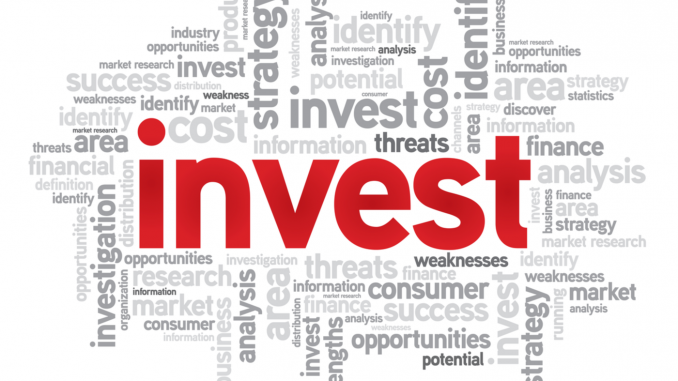The Minister of Finance, Budget and National Planning, Dr Zainab Ahmed, says Nigeria needs help from the private sector to meet its public investment needs.
Ahmed said this at the presentation of the latest World Bank Nigeria Development Update (NDU): “Nigeria’s Choice” and “Country Economic Memorandum(CEM): Charting a New Course” in Abuja on Thursday.
The Minister was represented by the Director-General of Budget Office of the Federation, Ben Akabueze.
“I wish to conclude my address by conceding that we need help. The Nigerian Government at the national and subnational levels cannot provide all the financing required to meet Nigeria’s public investment needs.
“As stated in the National Development Plan (NDP) 2021-2025, we need the private sector, both foreign and domestic, as integral partners in securing the much-needed financing required to fund both physical and social investments for Nigeria’s overall development.”
Ahmed said the report noted that under a business-as-usual scenario, Gross Domestic Product (GDP) per capita will continue to decline, however, drastic reforms could change this.
She said the Nigerian economy had demonstrated considerable resilience in addressing the challenges caused by COVID-19 and the Russian-Ukraine war which were global issues.
The Panelists at the presentation of the report also agreed that the private sector was needed to help change the country’s economic trajectory.
Gov. Godwin Obaseki of Edo said the solution was beyond microeconomics but in building a consensus and having an agreement to build the economy.
Obaseki said the report talked about jobs and the private sector, saying that the private sector accounts for 90 per cent of GDP.
“So, why should policy not be tuned to support the activities of the private sector so we can create more jobs?
“There is no alignment of interests for those in government. Look at our budget, up to 70 per cent of our budget is on servicing government and government institutions and much less on providing a supportive environment to allow the private sector.
“Unless and until we have that alignment in terms of interests and build the political and social consensus we will just keep turning around.
“I think we must broaden the conversations and understand that there is nothing new. It is either we drive our potential or things will fall apart,” he said
Gov. Nasir El -Rufai of Kaduna state said the private sector had a major role to play in arriving at a consensus to change the economic trajectory of Nigeria since it accounts for 95 per cent of Nigeria’s GDP.
“The consensus is that if 95 per cent of jobs are from the private sector and 90 per cent of GDP is from the private sector, the private sector should agree that these things must be done.
“ I have told you the two big elephants in this room are subsidy and exchange rate and those at the receiving end of these are the private sector and the subnational.”
He said that Nigeria needed a President who would reverse the trajectory of the country permanently.
“ Nigeria’s next President must make urgent and immediate decisions, maybe three to five years of pain to reverse this trajectory.
“So that President that is ready to change the trajectory will remove the word potential from Nigeria’s vocabulary and we will finally be the country we deserve to be,” he said.
Dr Sarah Alade, Adviser to the President on Finance and Economy, said the government needs to provide a platform for the private sector to invest if Nigeria is to improve its microeconomic climate.
Alade said this would be achieved by restoring the confidence in local and foreign investors through restoring microeconomic stability because every market economy thrived on confidence.
“The way we will do this is through urgent reforms in terms of the fiscal stance, the fiscal stance has to be consistent, and then we talk about removing subsidies, making revenue available and so on.
“We also must have a monetary policy stance consistent with low inflation. We have to also look at the exchange rate, our exchange rate must be such that it avoids volatility.
“We cannot grow the economy by ourselves, we need revenue, we need jobs, we need to be able to do things to encourage and motivate the private sector to come and provide all we need,” she said.
The World Bank Country Director for Nigeria, Shubham Chaudhuri, said the NDU report titled ” Nigeria’s Choice” was not political but referred to the choices in terms of policies and going forward.
” The choice we are talking about is that Nigeria stands at a critical juncture with a choice to make instead of floating along.
“This is a choice that rising to potential is realised going forward, “he said.
Dr Alex Sienaert, World Bank’s Lead Economist for Nigeria, who gave a presentation of the report, said the report recommended a set of reform choices Nigeria could make in three key areas in the short and medium terms.
Sienaert said the first reform was to restore macroeconomic stability through measures to reduce domestic and external imbalances.
“This will require a coordinated mix of the exchange rate, trade, monetary, and fiscal policies, notably including adopting a single, market-responsive exchange rate, eliminating the petrol subsidy, and increasing oil and non-oil revenues.”
He said the second thing was to boost private sector development and competitiveness by eliminating structural constraints that hinder productivity, and thirdly to expand social protection to protect the poor and most vulnerable.
The NDU which is released every six months assesses recent economic and social developments and prospects in Nigeria, and places these in a longer-term and global context.
The CEM offers key insights into Nigeria’s growth record since 2000 and highlights key policy reforms to chart a new and inclusive growth path that boosts growth and accelerates job creation.













